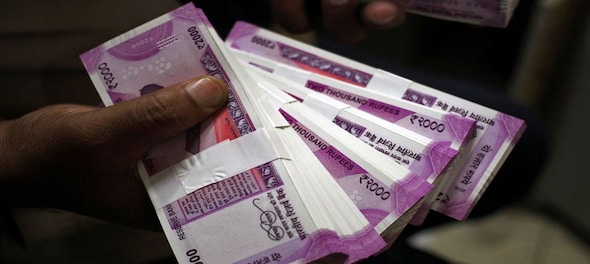
PIB Fact Check, a fact-checking unit of the Press Information Bureau, has recently alerted people against fake messages regarding bank notes with scribbling. A message circulating on social media claims that as per the new RBI guidelines, writing anything on bank notes makes them invalid. But PIB has asked citizens not to forward such misleading messages. It further said that these banknotes continue to be legal tender.
Live TV
Loading...
Does writing anything on the bank note make it invalid❓#PIBFactCheck
✔️ NO, Bank notes with scribbling are not invalid & continue to be legal tender✔️Under the Clean Note Policy, people are requested not to write on the currency notes as it defaces them & reduces their life pic.twitter.com/V8Lwk9TN8C— PIB Fact Check (@PIBFactCheck) January 8, 2023
However, it's important to note that under RBI’s Clean Note Policy, users are requested not to write anything on a currency note as it reduces its life.
"Ever since 1999, when the governor announced the Clean Note Policy, several steps were taken to augment the supply of currency notes and coins. The public members were urged not to write on the currency notes, and banks were instructed to provide unrestricted facilities for the exchange of soiled and mutilated notes. As per the Reserve Bank instructions, currency chest branches of the banks must offer, even to non-customers, good quality notes and coins in exchange for soiled and mutilated notes," RBI mentioned in its policy.
What RBI says about soiled and mutilated notes?
Soiled notes are those which have become dirty and slightly cut. Notes with numbers on two ends, i.e. notes in the denomination of Rs 10 and above, which are in two pieces, are also treated as soiled notes.
On the other hand, a mutilated note is a note in which a portion is missing or composed of more than two pieces. Essential portions in a currency note are the name of issuing authority, guarantee, promise clause, signature, Ashoka Pillar emblem/portrait of Mahatma Gandhi, and watermark.
All these notes can be exchanged at the counters of any public sector bank branch, any currency chest branch of a private sector bank or any issuing office of RBI.
There is no need to fill out any form to do this, according to the central bank.
In this case, where the number of notes presented by a person is up to 20 pieces with a maximum value of Rs 5,000 per day, banks should exchange them over the counter, free of charge.
In the case of soiled notes, when the number of notes presented by a person exceeds 20 pieces or Rs 5,000 in value per day, banks may accept them, against receipt, for value to be credited later. Banks may levy service charges too. In case tendered value is above Rs 50,000, banks are expected to take the usual precautions.
In the case of mutilated notes, where the number of notes presented by a person is up to 5 pieces, non-chest branches should normally adjudicate the notes and pay the exchange value over the counter. Where the number of notes presented by a person is more than five pieces not exceeding Rs 5,000 in value, the tenderer should be advised to send such notes to a nearby currency chest branch by insured post giving his/her bank account details (a/c no, branch name, IFSC, etc.) or get them exchanged thereat in person.
Notes which have turned extremely brittle or are badly burnt, charred or inseparably stuck up together and, therefore, cannot withstand normal handling are not accepted by the bank branches for exchange.
Check out our in-depth Market Coverage, Business News & get real-time Stock Market Updates on CNBC-TV18. Also, Watch our channels CNBC-TV18, CNBC Awaaz and CNBC Bajar Live on-the-go!


Punjab Lok Sabha elections: Complete list of Congress candidates
May 18, 2024 4:08 PM
Punjab Lok Sabha elections: Check full list of AAP candidates and constituencies
May 18, 2024 12:59 PM
PM Modi, Rahul Gandhi election rallies in Delhi today: Here are the routes to avoid
May 18, 2024 11:28 AM

